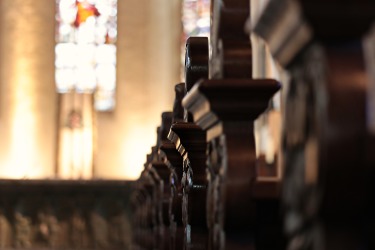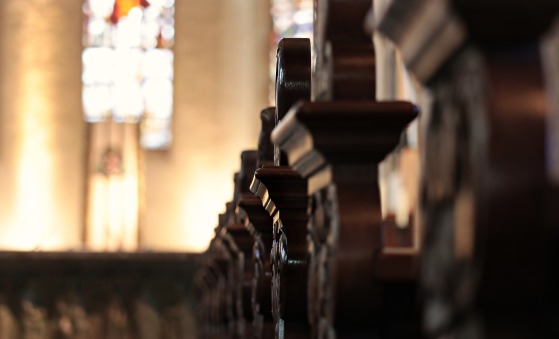
A group of Dalit Catholics in Tamil Nadu’s Trichy district staged a hunger strike on Monday, protesting what they say is long-standing caste-based exclusion from church festival celebrations in their parish.
The protest took place near the District Collector’s Office and targeted discriminatory practices at the Church of St. Mary Magdalene in Kottapalayam, where an annual festival organized by the Diocese of Kumbakonam began on July 14. Protesters said that Dalit Christians have been repeatedly sidelined in both financial contributions and planning roles for the celebrations.
“We are not allowed to pay parish dues or be on the festival committee,” said R. Raj Nobili, a protester. “Even though there are seven chariots in the festival, not even the smallest one comes to our streets.”
The protesters accused dominant-caste parishioners of using casteist slurs and threatening them against participating. Human rights lawyer Jo Kennedy, who supports the protest, condemned the practice as unconstitutional. “This is a violation of equality guaranteed by law. The Church must dismantle the caste wall from within,” he said.
In a rare and strong show of solidarity, Bishop Jeevanandam Amalanathan of Kumbakonam publicly refused to take part in the chariot procession, citing the “persisting caste discrimination in the parish.”
While distancing the Church institution from the discriminatory actions, Bishop Amalanathan acknowledged that Dalit Catholics are indeed excluded from the festival's external events. “Inside the church, there is no discrimination. Dalits serve in the choir, readings, and collections,” he said in an interview with AsiaNews. “But outside the church, dominant caste groups do not allow Dalits to participate or contribute to the annual collections.”
The bishop said he has attempted to mediate, but his efforts have been met with resistance. “I told them I do not approve. I am not willing to participate in celebrations that are exclusionary,” he said. “We will continue the dialogue process and keep stressing that all should be treated equally.”
The issue has also reached the Supreme Court, where Dalit Catholics have filed a case. Bishop Amalanathan confirmed the Church will respond, reaffirming its official stance against any form of discrimination. “The Church stands for justice and equality. But enforcement is difficult in matters that take place outside its direct control,” he explained.
As the festival continues, Dalit Catholics are demanding that at the very least, one of the chariots be brought through their streets, symbolizing recognition and inclusion. For now, they say, their only recourse is continued protest and legal pressure to challenge what they call an entrenched caste hierarchy in their parish community.
Adapted from AsiaNews.it.




